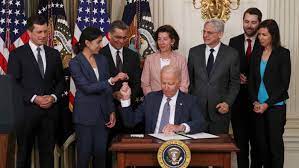 The Masters: a tradition unlike any other. And a golfer unlike any other is looking to make history this weekend at the annual golf tournament played at Augusta National Golf Club in Augusta, Georgia: Tiger Woods. Actually, Woods is looking at 2 records this weekend, one of which is more attainable than the other. Woods has made 23 consecutive cuts at the Masters, tied with Fred Couples and Gary Player for the longest streak of all-time. The Masters has a notoriously unforgiving cut, allowing only the top-50 players from the first two days to advance into the weekend, where most PGA events mark their cut at the top-61. If he makes the cut after today, he will hold the record for the most consecutive cuts made. Tiger Woods also sits one green jacket away from Jack Nicklaus, the sport’s all-time leading major winner with 18, who has won the most Masters Tournaments with six victories. A victory on Sunday will put Woods into a first place tie with Nicklaus for most Masters victories, and move him two majors victories away from tying the legend. While Woods is certainly not the golfer he once was, no one wants to be the one to count him out. And after shooting a 1-over opening round, he could still be in the hunt, at least to make the cut. And now on to this week’s logistics news.
The Masters: a tradition unlike any other. And a golfer unlike any other is looking to make history this weekend at the annual golf tournament played at Augusta National Golf Club in Augusta, Georgia: Tiger Woods. Actually, Woods is looking at 2 records this weekend, one of which is more attainable than the other. Woods has made 23 consecutive cuts at the Masters, tied with Fred Couples and Gary Player for the longest streak of all-time. The Masters has a notoriously unforgiving cut, allowing only the top-50 players from the first two days to advance into the weekend, where most PGA events mark their cut at the top-61. If he makes the cut after today, he will hold the record for the most consecutive cuts made. Tiger Woods also sits one green jacket away from Jack Nicklaus, the sport’s all-time leading major winner with 18, who has won the most Masters Tournaments with six victories. A victory on Sunday will put Woods into a first place tie with Nicklaus for most Masters victories, and move him two majors victories away from tying the legend. While Woods is certainly not the golfer he once was, no one wants to be the one to count him out. And after shooting a 1-over opening round, he could still be in the hunt, at least to make the cut. And now on to this week’s logistics news.
- Biden administration announces $860m for transportation infrastructure
- Red Sea shipping diversions boosting airfreight
- Panama plans dry alternative to drought-hit canal
- US cargo imports soar
- US invests billions in domestic chip production
- Robots, humans mingle at new Amazon facility
- Sobeys expands partnership to eliminate ice from broccoli supply chain
- USPS proposes raising the prices of 1st class stamps to 73 cents
 The Biden-Harris Administration announced nearly $830 million in grant awards for 80 projects nationwide that will help states and local communities save taxpayers money while strengthening surface-transportation systems and making them more resilient to extreme weather events worsened by the climate crisis, flooding, sea-level rise, heat waves, and other disasters. These grants are the first of their kind dedicated to transportation infrastructure resilience and were made possible by President Biden’s Bipartisan Infrastructure Law’s Promoting Resilient Operations for Transformative, Efficient, and Cost-saving Transportation (PROTECT) Discretionary Grant Program, which complements PROTECT Formula funding that is already flowing to states for these types of projects. To strengthen America’s climate resilience, President Biden has secured more than $50 billion for climate resilience and adaptation through the Bipartisan Infrastructure Law and Inflation Reduction Act, and established a National Climate Resilience Framework, which is advancing locally tailored, community-driven climate resilience strategies. For the full list of grant recipients, click here.
The Biden-Harris Administration announced nearly $830 million in grant awards for 80 projects nationwide that will help states and local communities save taxpayers money while strengthening surface-transportation systems and making them more resilient to extreme weather events worsened by the climate crisis, flooding, sea-level rise, heat waves, and other disasters. These grants are the first of their kind dedicated to transportation infrastructure resilience and were made possible by President Biden’s Bipartisan Infrastructure Law’s Promoting Resilient Operations for Transformative, Efficient, and Cost-saving Transportation (PROTECT) Discretionary Grant Program, which complements PROTECT Formula funding that is already flowing to states for these types of projects. To strengthen America’s climate resilience, President Biden has secured more than $50 billion for climate resilience and adaptation through the Bipartisan Infrastructure Law and Inflation Reduction Act, and established a National Climate Resilience Framework, which is advancing locally tailored, community-driven climate resilience strategies. For the full list of grant recipients, click here.
Retailers and manufacturers are flying more goods around the shipping crisis in the Red Sea, industry experts say, helping boost international airfreight operators after a long period of sagging cargo volumes. The strategy, the latest sign of how companies are adjusting their supply chains in response to geopolitical shock waves and disruptions, comes as European importers are seeking to avoid delays caused by longer voyages around Africa by containerships that usually travel through the Suez Canal. The demand is contributing to a busy airfreight market during what is traditionally a slow period.
 Panama on Wednesday unveiled plans for a “dry canal” to move cargo between the Pacific and Atlantic oceans due to low water levels in its century-old maritime channel. The Panama Canal usually handles about six percent of global maritime trade, but a drought caused by climate change and the El Nino phenomenon has forced authorities to limit the number of ships passing through. The Multimodal Dry Canal project will use existing roads, railways, port facilities, airports and duty-free zones in a new “special customs jurisdiction,” said Rodolfo Samuda, director of logistics at the ministry of the presidency. It will not require any investment thanks to its use of existing infrastructure, he said at the presentation of the project. A decree simplifying procedures for transporting cargo by land across the isthmus has already been declared by President Laurentino Cortizo. The project aims “to complement the Panama Canal” and resolve the problems facing its users, said Guillermo Salazar, director of the country’s state development planning institute. Now 27 ships navigate the Panama Canal each day, compared with 39 previously.
Panama on Wednesday unveiled plans for a “dry canal” to move cargo between the Pacific and Atlantic oceans due to low water levels in its century-old maritime channel. The Panama Canal usually handles about six percent of global maritime trade, but a drought caused by climate change and the El Nino phenomenon has forced authorities to limit the number of ships passing through. The Multimodal Dry Canal project will use existing roads, railways, port facilities, airports and duty-free zones in a new “special customs jurisdiction,” said Rodolfo Samuda, director of logistics at the ministry of the presidency. It will not require any investment thanks to its use of existing infrastructure, he said at the presentation of the project. A decree simplifying procedures for transporting cargo by land across the isthmus has already been declared by President Laurentino Cortizo. The project aims “to complement the Panama Canal” and resolve the problems facing its users, said Guillermo Salazar, director of the country’s state development planning institute. Now 27 ships navigate the Panama Canal each day, compared with 39 previously.
Inbound cargo volume at the nation’s major container ports in the month of May is expected to top 2 million units for the first time since last fall, as imports grow despite new supply chain challenges, according to the Global Port Tracker report released today by the National Retail Federation (NRF) and Hackett Associates. “U.S. imports are continuing to increase despite another disruption impacting U.S. ports,” NRF Vice President for Supply Chain and Customs Policy Jonathan Gold said. “As retailers have adjusted to limits on the use of the Panama Canal and the Red Sea, we now face the shutdown of the Port of Baltimore to vessel traffic. While it is not expected to have a national impact, the tragic collapse of the Francis Scott Key Bridge shows the ongoing need for flexibility and resiliency in every company’s supply chain. We are monitoring the situation closely as retailers who are affected adjust their shipping plans to ensure cargo is getting to where it needs to be.”
The Biden administration announced a $6.6 billion grant on Monday designed to commit the world’s top chipmaker to mass-produce its next generation of microchips in Arizona. “For the first time ever, we will be making, at scale, the most advanced semiconductor chips on the planet here in the United States,” Commerce Secretary Gina Raimondo said to reporters ahead of the announcement. “These are the chips that underpin all artificial intelligence, and they are the chips that are necessary components for the technologies that we need to underpin our economy, but frankly a 21st century military and national security apparatus.”
Amazon’s largest facility in Massachusetts had its official ribbon-cutting ceremony on Monday. The five-story fulfillment center in North Andover is on the site of a former telephone company factory and is spread out over almost 4 million square feet, according to the newspaper. With 12 miles of conveyor belts and thousands of robots to automate goods processed in the facility, it is Amazon’s first highly automated warehouse in the state. The facility cost about $400 million to build. Amazon was granted $27 million in property tax breaks for the warehouse over 10 years by North Andover, which approved the project in 2019. The center will employ 1,500 people.
Verdant Technologies says is partnering with Sobeys Inc. to expand the adoption of its HarvestHold Fresh product in Canada to improve the sustainability and efficiency of the North American broccoli supply chain. HarvestHold Fresh is an in-box sheet that uses an industry-standard ingredient, widely used in commodities like apples and flowers for more than two decades, to extend freshness and shelf life, according to a news release. HarvestHold Fresh is placed in produce boxes immediately after harvest to slow ripening and maturation so that produce can maintain its vitality and taste for longer. Verdant Technologies says HarvestHold Fresh eliminates the need for ice when transporting broccoli, significantly reducing water use and optimizing space, which creates a more sustainable method of shelf-life preservation and makes transportation more efficient.
If the U.S. Postal Service gets its way, the price of a first-class stamp will go up for the fourth time in less than two years. The USPS is proposing hiking the cost of a first-class stamp to 73 cents, or roughly 7% on all forms of postage. If approved, the plan, which was announced on Tuesday, will raise the price of metered 1-ounce letters to 69 cents, international ounce-size letters and postcards to $1.65 and domestic postcards to 56 cents. The proposal has been sent to the independent Postal Regulatory Commission for final approval. If the commission signs off, the new prices will take effect in July.
That’s all for this week. Enjoy the weekend and the song of the week, Master of Puppets by Metallica.

















